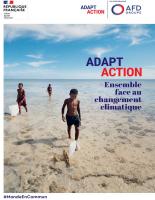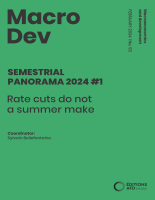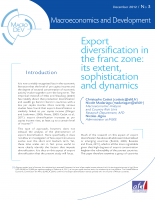
Benin


- Promoting high-quality education and access to training
- Developing sustainable agriculture
- Increasing access to electricity
- Promoting sustainable and resilient urbanization
- Facilitating SME financing and supporting innovation
Promoting high-quality education and access to training
Developing sustainable agriculture
Increasing access to electricity
Promoting sustainable and resilient urbanization
Facilitating SME financing and supporting innovation
Benin, a West African country bordered by Togo, Nigeria, Burkina Faso and Niger, has a 121 km-long coast on the Gulf of Guinea. It has a population of 10 million, 40% of which lives below the poverty line.
This is because Benin is still one of the least developed countries in Africa despite its political stability and numerous assets. Its agricultural and tourism resources are plentiful, its population is young and its geographical position – close to large markets (Nigeria, as well as its own growing population) – makes it a key centre of transit and one of the countries with the most potential in the region.
But Benin is still too dependent on informal transit trade to neighbouring Nigeria (20% of its GDP) and on agricultural production (25%). It is struggling to meet the needs of its ever-growing population and to provide its private sector with a favourable business climate. The Beninese government needs to overcome the challenges of access to electricity, education and healthcare as well as balanced and sustainable development of its territory.
Benin is one of the priority countries for French aid. As a long-standing partner, AFD has made the country's national challenges a priority. We work alongside public and private actors through loans, donations, guarantees and technical assistance. From 2013, we committed more than €440m to Benin.
AFD's Benin office is directly attached to the Guf of Guinea regional office in Abidjan.





























